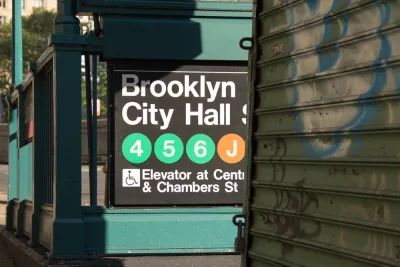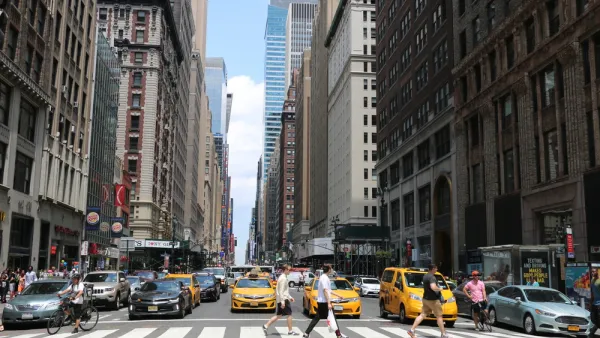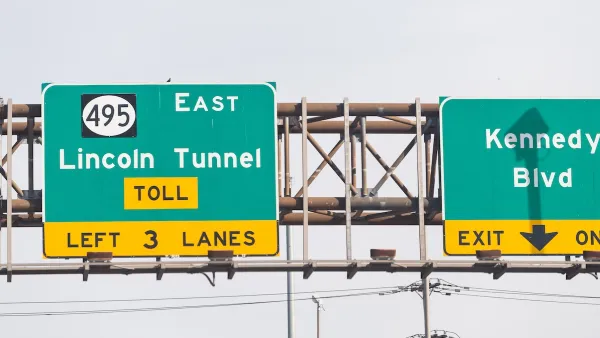One way, or another, wealthy New Yorkers are probably going to end up contributing to the financial end of the equation for solutions to New York's public transit woes.

"Pressure to find revenue to finance a $40 billion fix for New York’s subways, buses and regional commuter rail has sparked renewed city and state interest in a tax on wealthy non-residents who own luxury city apartments," reports Henry Goldman.
"New York Governor Andrew Cuomo’s budget director, Robert Mujica, jump-started the idea Wednesday in a statement that totaled up potential revenue sources for regional transit funding: $15 billion from congestion pricing, $5 billion from Internet sales, and $2 billion from yet-to-be-legalized cannabis. The so-called 'pied-à-terre tax' on non-resident owners could raise as much as $9 billion, Mujica said."
Mayor Bill de Blasio has for a long time favored an income tax on millionaire residents in the city to finance transit improvements in the city, but de Blasio recently came to an agreement with New York Governor Andrew Cuomo on a congestion pricing scheme. With the pied-à-terre tax now on the table in the governor's office, Mayor de Blasio expressed support in a soundbite included in the article.
FULL STORY: New York Considers Taxing Non-Resident Owners of Luxury Apartments

Analysis: Cybertruck Fatality Rate Far Exceeds That of Ford Pinto
The Tesla Cybertruck was recalled seven times last year.

National Parks Layoffs Will Cause Communities to Lose Billions
Thousands of essential park workers were laid off this week, just before the busy spring break season.

Retro-silient?: America’s First “Eco-burb,” The Woodlands Turns 50
A master-planned community north of Houston offers lessons on green infrastructure and resilient design, but falls short of its founder’s lofty affordability and walkability goals.

Test News Post 1
This is a summary

Analysis: Cybertruck Fatality Rate Far Exceeds That of Ford Pinto
The Tesla Cybertruck was recalled seven times last year.

Test News Headline 46
Test for the image on the front page.
Urban Design for Planners 1: Software Tools
This six-course series explores essential urban design concepts using open source software and equips planners with the tools they need to participate fully in the urban design process.
Planning for Universal Design
Learn the tools for implementing Universal Design in planning regulations.
EMC Planning Group, Inc.
Planetizen
Planetizen
Mpact (formerly Rail~Volution)
Great Falls Development Authority, Inc.
HUDs Office of Policy Development and Research
NYU Wagner Graduate School of Public Service




























